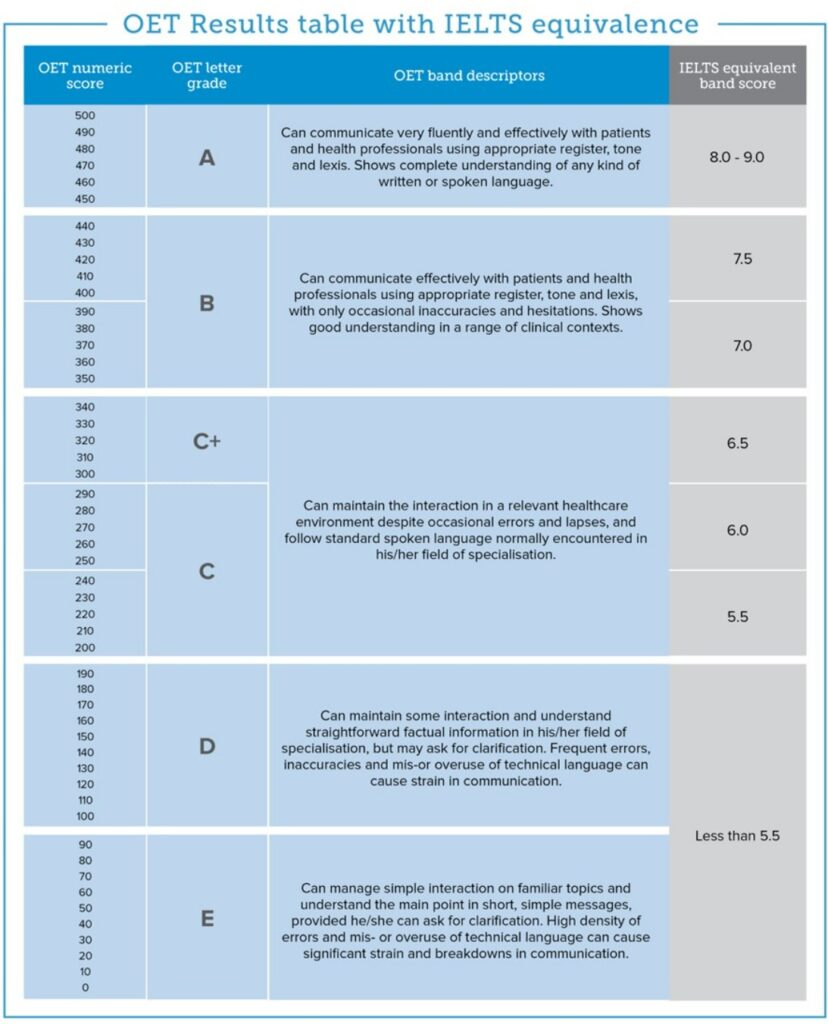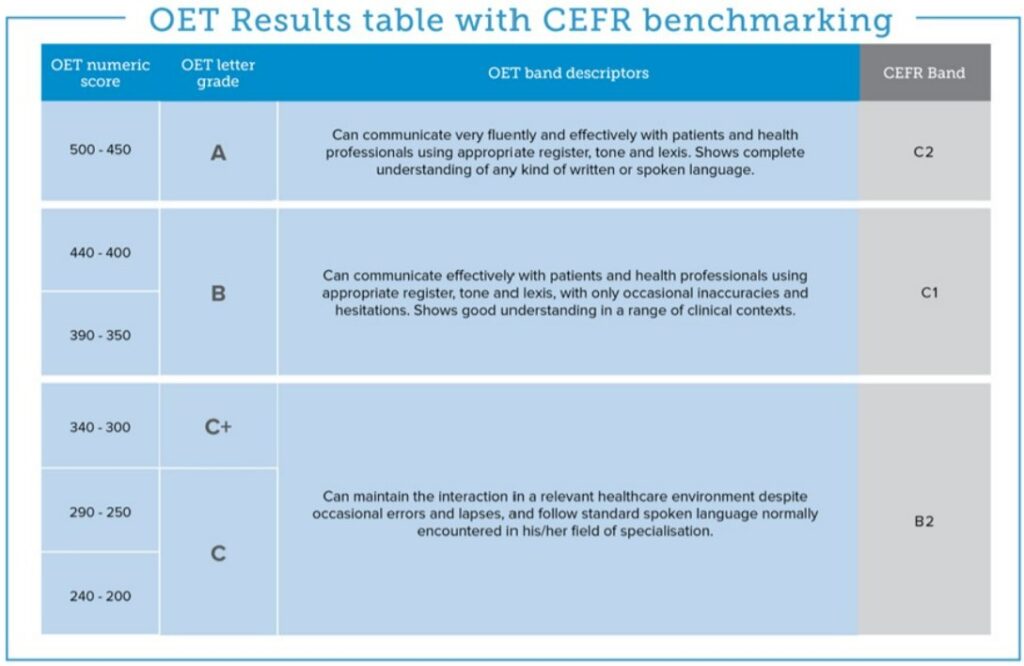Table of Contents
ToggleOET Eligible countries in 2023
The OET (Occupational English Test)exam is an exclusive English language test that has been designed for health care professionals. It is hosted and managed by the Cambridge Boxhill Language Assessment Trust (CBLA).
The following countries mandate registration for the OET, for healthcare personnel seeking employment or looking to study there:
- Australia
- Canada
- Ireland
- Maldives
- Malta
- Namibia
- New Zealand
- Philippines
- Qatar
- Singapore
- Spain
- Ukraine
- United Kingdom
- United Arab Emirates and
- The United States of Amer
In order to establish their competency in the use of the English language, they must secure the necessary score in OET. Here is a useful primer to use as a reference for your eligibility
OET Exam Eligibility:
Candidates desiring to register for the OET must carefully consider the following criteria before registering for the OET.
The CBLA does not specify minimum educational qualifications in order to attempt to
write the OET.
This means the candidate just needs to be seeking to find employment in the health
care sector in the countries mentioned above, to be eligible to attempt the OET.
OET Eligibility: Age Requirements
The CBLA does not specify any age limits, in order to write the OET. Register for the OET exam on the official website, here:
https://www.occupationalenglishtest.org/book-oet/
OET Eligibility for Nurses
Since the OET is designed specifically for healthcare personnel, nurses are automatically required to pass the exam, to work in the above-mentioned countries. However, doctors and nurses are the mainstays of the healthcare industry. Nurses have special provisions for the OET ranking system. This leads to an ambiguity in the eligibility norms for nurses. In the prescribed criteria for nurses, they are expected to score a B in the OET
Listening, Reading, and Speaking sub-tests and a C+ in Writing. Nurses are required to obtain a minimum score of 350 out of 500 to become accredited nurses in a foreign country. But there are variances in the eligibility criteria for nurses depending on their specialization area and other factors. So, individual nurses are best advised to clarify the OET eligibility requisites for their areas of study or specialization. This can be done by referencing their classification on the official website of OET: https://www.occupationalenglishtest.org/book-oet/
They can then learn what score they need to obtain to secure a passing grade on the exam.
What score do I need to pass OET?
In the prescribed criteria for nurses, nurses are expected to score a B in the OET
Listening, Reading and Speaking sub-tests and a C+ in Writing. Nurses are required to obtain a minimum score of 350 out of 500 to become accredited nurses in a foreign country.
You need to inspect the score requirements of the University or Employer that you intend to study in/work for, to know what score will be your target score should be. The official OET website has precise information to find out your target score to achieve in general . We have given below what it says:
Note : The following data in italics ( and the two picture charts) are taken directly from
the official OET website.
You will receive a Statement of Results which shows your score for each of the four sub-tests, on a scale from 0 to 500. Each of the four sub-tests is assessed in a specific way.


Listening and Reading
Your answer booklets for Listening Part A and for Reading Part A are marked by trained OET Assessors. These answer booklets are assigned to OET Assessors at random to avoid any conflict of interest. Your answer booklets for Reading and Listening Parts B and C are computer-scanned and automatically scored. Listening and Reading Assessors use a detailed marking guide that sets out which answers receive marks and how the marks are counted. Assessors use this guide to decide for each question whether you have provided enough correct information to be given the mark or marks available. Assessors are monitored for accuracy and consistency, and your Part A answers are marked by at least two different assessors.
Writing and Speaking
Your performances on the Writing and Speaking sub-tests are each rated by at least two trained Assessors. Audio files and scripts are assigned to Assessors at random to avoid any conflict of interest. Your test-day Interlocutor is not involved in the assessment process.
Writing and Speaking Assessors are monitored for accuracy and consistency, and the scores they award are adjusted to take into account any leniency or severity. If two Assessors award different scores to your performance, your script and/or audio file will be referred to at least one other senior Assessor not previously involved in your assessment.
For the Writing sub-test, each Assessor scores your performance according to six criteria: Purpose, Content, Conciseness & Clarity, Genre & Style, Organisation & Layout, and Language. Each criterion is assigned a band score from 0 to 7, except Purpose, which has a band score of 0 to 3. A score of 350 (previously grade B) for Writing requires a high level of performance on all six criteria.
For the Speaking sub-test, each Assessor scores your performance according to nine
criteria. The four linguistically-oriented criteria are Intelligibility, Fluency,
Appropriateness of Language, and Resources of Grammar and Expression. They are assessed on a scale from 0 to 6. Clinical communication criteria include Indicators of Relationship Building, Indicators of Understanding & Incorporating the Patient’s Perspective, Indicators of Providing Structure, Indicators for Information Gathering and Indicators for Information Giving. They are assessed on a scale from 0 to 3. A high level of performance on all nine criteria is required in order to achieve a score of 350 (previously grade B) on the speaking test.
This Article is published by : Grace Academy
